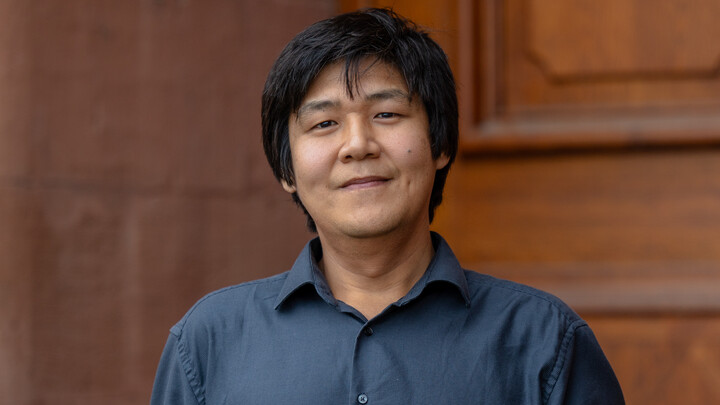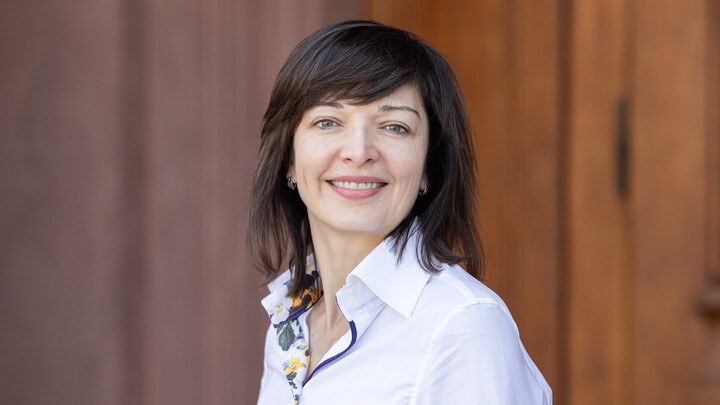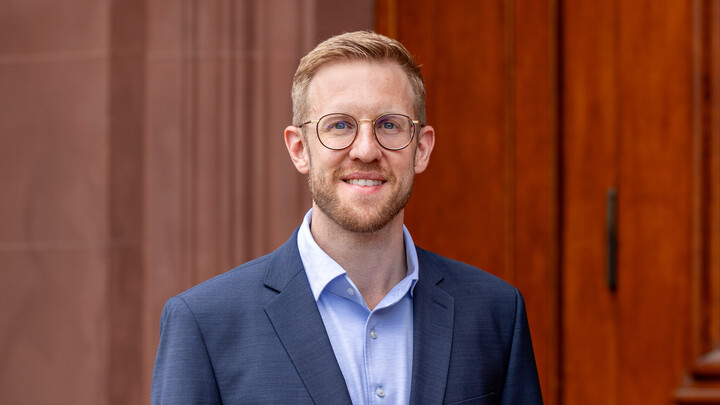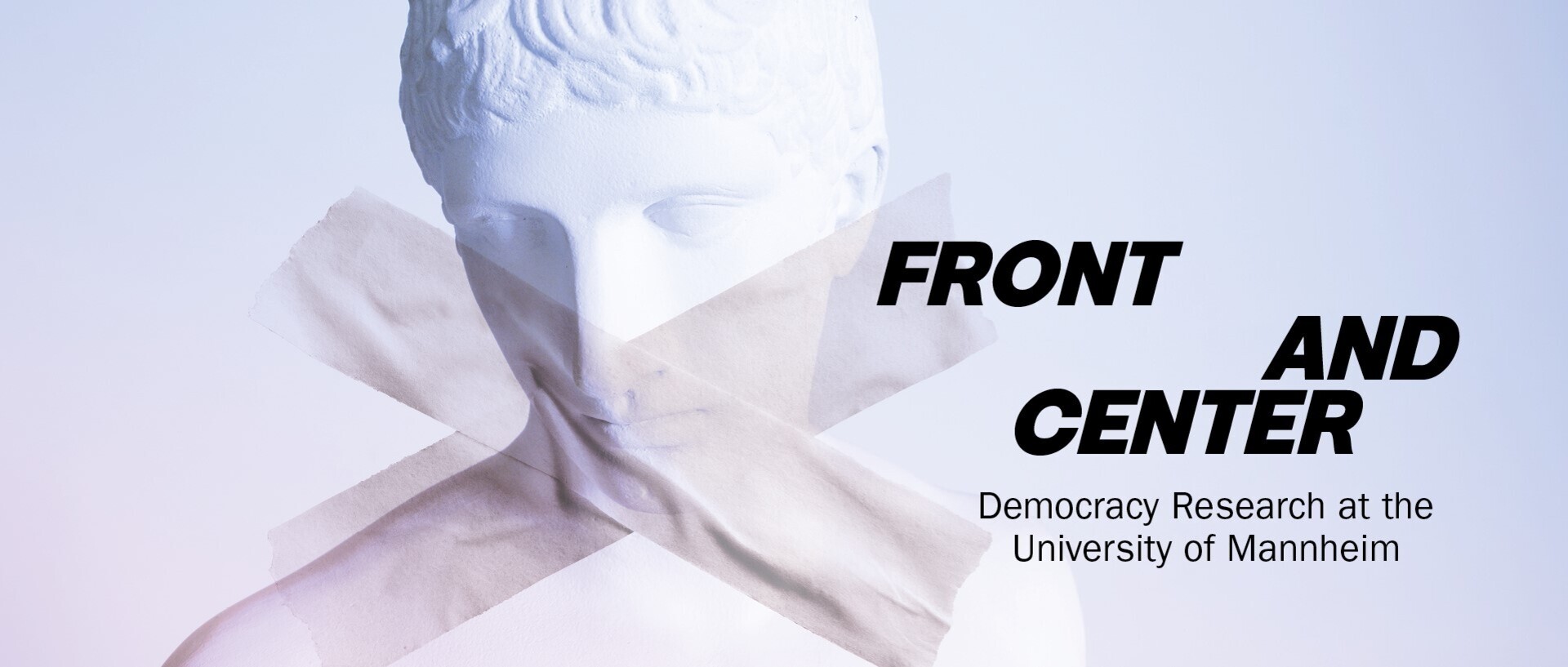Welcome to the University of Mannheim
Prof. Nan Zhang, Ph.D.
Chair of Evidence-Based Political Research

Talk to Professor Zhang, and you’ll quickly notice: here’s a scholar who likes to think outside the box. Not only because his research connects historical data with contemporary questions of identity and integration, but also because his own path into political science hasn’t exactly followed a standard trajectory. “I don’t think I’m a typical political scientist,” he says. “I’m less interested in elections, parties, or parliaments. What fascinates me is how the state shapes social norms and identities—and how those, in turn, influence political behavior.”
Raised in the U.S., Zhang studied economics and political science at the University of California, Berkeley. He later earned a law degree and completed a PhD in political science at Stanford. Since 2021, he has been conducting research in Mannheim —and feels right at home here. “The university is analytically strong, empirically oriented, and data driven. That aligns perfectly with my research interests.” The fact that his wife is German made the move easier. “Basically, I just relocated from one wine-growing region to another,” the California native says with a laugh. In April 2024, he took up the Chair in Evidence-Based Political Research.
One of his current projects takes a historical look back at 1880s America—specifically at German and Irish immigrants, their neighborhoods, and whom they later married. “If an American child grew up next to a German immigrant family, did that influence their choice of partners later in life?” he asks. His research looks not only at how immigrants came into contact and interacted with native-born Americans, but also at how different immigrant groups connected with one another.
His decision to settle in the Rhine region rather than remain in the U.S. was shaped by political factors as well. “To be honest, I consider myself lucky to hold this position in Germany. What’s currently happening in U.S. academia is alarming. Some colleagues lose their funding overnight.”
In Mannheim, by contrast, he’s looking ahead. An ERC grant proposal is in the works. And Zhang already has a long-term goal in sight: “I’d like to help make our political science department not only one of the best in Germany but a leader in Europe as well.”
Research interests:
- State formation and state development
- Intergroup relations
- Language and identity
- Social norms
- Civic behavior
Prof. Dr. Lidia Becker
Chair of Romance Linguistics and Media Studies

To Lidia Becker, language is more than just a means of communication—it’s a tool of power, but also of emancipation. The new Chair of Romance Linguistics and Media Studies (with a focus on Spanish) explores how political discourse is shaped, what linguistic practices define the media landscape, how linguistic diversity becomes (in)visible in migration societies, and what speakers think, feel, and say about language.
Born in the Russian-Ukrainian border region, Lidia Becker studied Romance studies with a focus on Spanish, translation studies, and associated teaching methodology in Voronezh, Russia. After moving to Germany, she continued her academic training at the universities of Mainz, Trier, and Hanover. Her path also included stints in Siena and Lisbon. She earned her doctorate in historical onomastics (the study of names) in Trier. In 2011, she was appointed junior professor in Hanover, where she increasingly focused on Latin American studies at the Centre for Global and Atlantic Studies. In 2017, her junior professorship was converted into a full professorship (W3) as part of a tenure-track process.
As she begins her tenure at the University of Mannheim in the spring/
Another focus of her work is Latin America, especially Argentina, where Becker regularly conducts field research. Her projects often take place in border regions where multiple languages intersect. Collaborating with local universities, she studies social dynamics and linguistic practices—often in the context of informal economies. “The interplay between language, space, and social roles is particularly complex in these settings,” says Becker.
When asked to describe Mannheim, she calls it an open, diverse city with a strong welcoming culture. “I was warmly received here. You can just strike up a conversation with people on the street. That’s such a lovely part of life in southern Germany—and I feel a strong personal connection to the region, both through family and from my student days.”
Research interests:
- Sociolinguistics and discourse analysis
- Media linguistics and communication technologies
- Feminist linguistics
- Language and cultural policy in the Romance-speaking world, especially Latin America
- Colonial and postcolonial language dynamics
- Migration linguistics
Prof. Dr. Jens Förderer
Chair of Information Systems II

For Jens Förderer, the University of Mannheim is a familiar place—both academically and personally. Raised in nearby Heidelberg, he studied business informatics in Mannheim, earned his doctorate in business administration here, and now, after academic appointments in Munich and Oxford, returned to his alma mater in March 2025 as Professor of Information Systems. “It’s the combination of excellent research, innovative teaching, and societal relevance that brought me back to Mannheim,” says Förderer, a former Kulturkreis fellow.
His research sits at the intersection of digitalization, business, and society, with a focus on the “economics of information systems”—in other words, how digital technologies are reshaping markets. He’s particularly interested in how new tools—such as artificial intelligence—affect companies’ productivity and innovative capacity. This also raises questions regarding the quality of ideas: Are these tools generating more original ideas, or just churning them out more efficiently?
He pays close attention to digital platforms like Instagram, Amazon, and Google. These markets follow their own logic, driven by algorithms, likes, and user data. Förderer’s research shows that these platforms are not just places of exchange—they are also powerful economic hubs. His team studies how major tech players set incentives, create visibility, and distort competition. “Platforms like Instagram or TikTok provide great case studies of how digital competition works—and how it might be shaped going forward.”
One of his current research projects—funded by a prestigious ERC Grant—examines so-called gatekeepers: platform operators such as Apple and Google that use their app stores to control which apps are visible to users. “These companies set the rules of the game: which apps are given exposure, who is allowed to use them, and under what conditions.” Förderer is investigating how the EU’s new Digital Markets Act will affect this landscape. Will it boost the innovative potential of smaller developers—or will things stay the same?
Connecting theory and practice is also Förderer’s philosophy in the classroom. In his course “Analytics for Digital Markets,” students analyze how companies like Meta or Amazon test new products. The goal: not just to understand how digital markets work, but to help shape them.
For Förderer, Mannheim offers the ideal environment to bridge research, teaching, and societal impact. “Here, I get to work on hot-button questions with a strong team—and inspire students to think critically and creatively about the digital economy.”
Research interests
- Impact of digital technologies on businesses and markets
- Digital markets and business models
- Governance and regulation of digital technologies and platforms
Texts: Yvonne Kaul and Fabio Kratzmaier / August 2025
